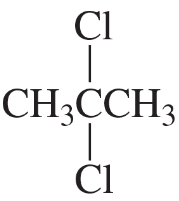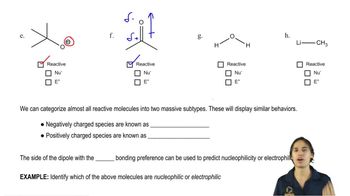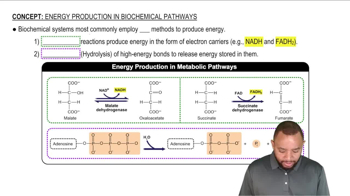Show how the following compounds can be synthesized starting with ethyne:
b. trans-3-heptene

 Verified step by step guidance
Verified step by step guidance Verified video answer for a similar problem:
Verified video answer for a similar problem:



 3:25m
3:25mMaster Predict the major product. with a bite sized video explanation from Johnny
Start learning